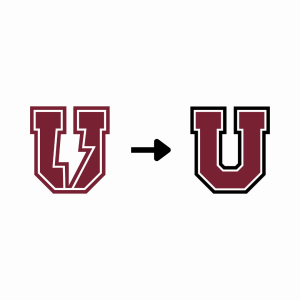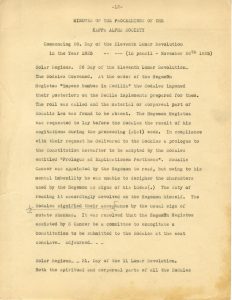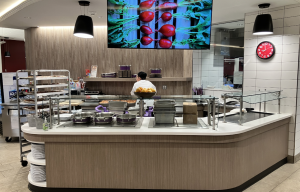Coronavirus pandemic decreases college admission and retention rate
May 13, 2020
On March 17, President Harris announced that Union will not conduct in-person classes for Spring 2020. In the face of the current pandemic, there are several uncertainties about the in-person classes that are due to take place in Fall 2020 as well. Recently, Concordiensis reached out to the several administrative offices on campus to assess the impact of the recent changes at Union on the retention and admission rates.
A total of 2073 students are currently enrolled at Union for Spring term 2020, according to Penelope S. Adey, the registrar of Union College. This means that 64 students have withdrawn since the winter term 2020 when 2137 students were enrolled, according to Adey.
“While we had some students who chose not to enroll for the spring term because of the pandemic, the dropoff in students from winter to spring included students who had completed the requirements for their degree,” said Phil Wajda, Union’s Director of Media and Public Relations. Compared to this term, there was only a drop of 20 students from Fall to Winter term in the academic year 2019-2020, implying that the dropoff has become three times what it was before this pandemic.
When asked about the financial impact of the dropoff on Union, Wajda said “Like most colleges and universities, the financial impact of the pandemic is due in large part to the loss of room and board revenue, while fixed costs remain.”
Similar trends were observed in the admission rate for this year. A total of 3115 students were admitted in the class of 2024, according to Matt Malatesta ’91, Vice President for Admissions, Financial Aid and Enrollment. Out of the admitted students, “475 have committed while 41 extended deposit deadlines,” according to Malatesta. He told Concordiensis that some students have been given until May 15 and others June 1 to commit to their offer. At the current standing, it means that only 15 percent of the accepted students have committed to Union. Compared to this, last year, 2765 students were accepted to Union and 550 committed, implying that 19 percent of the accepted students committed to the class of 2023. In addition to this, there are only 40 International students in the class of 2024 “which is down about 30 from last year” according to Malatesta.
“This is a challenging time for admitted students. In past years, these students had the ability to visit or revisit Union and the other colleges they considered, but this year’s group did not have the ability to do so,” Malatesta said. The Admissions Office has had to switch to online guided virtual tours. They have hosted over twenty virtual panels, created eighteen videos, hosted virtual receptions, offered live chat sessions and taped or hosted virtual sample classes with professors, Malatesta told Concordienses. The Financial Aid Office also offered one-on-one counseling. “With all of these efforts, we were able to help people learn more about Union, but it is hard to fully capture and share the spirit and warmth of our community,” Malatesta said.
According to Malatesta, over 300 colleges and universities suspended the May 1 deposit date. “… so this will create a much different summer than we are accustomed [to],” he said. When asked why Union elected to not suspend the May 1 commitment date, Malatesta said “People want answers to questions that don’t have answers right now. People were disappointed not to be able to visit campus in April, but similarly they can not do so in May, so a shifting of the date has not brought increased clarity. As in all years, we are willing to work with individual students on their own timelines when necessary, and stay similarly committed.” He further mentioned he was disappointed that him and his team were not able to show off the “wonderful campus and community in person” and that he hopes people “can see the opportunities that await them at Union” and that “the short term worries don’t affect important decisions that can affect the rest of their lives.”
Wajda mentioned that the Planning for Multiple Tomorrows (PMT) working group is considering several scenarios for Fall term. On April 25, President Harris informed the Union community that the working group consisting of students, faculty and staff, and chaired by himself will “consider a variety of scenarios, and offer new and creative ideas for how the College can continue to achieve its mission and realize its vision.”







